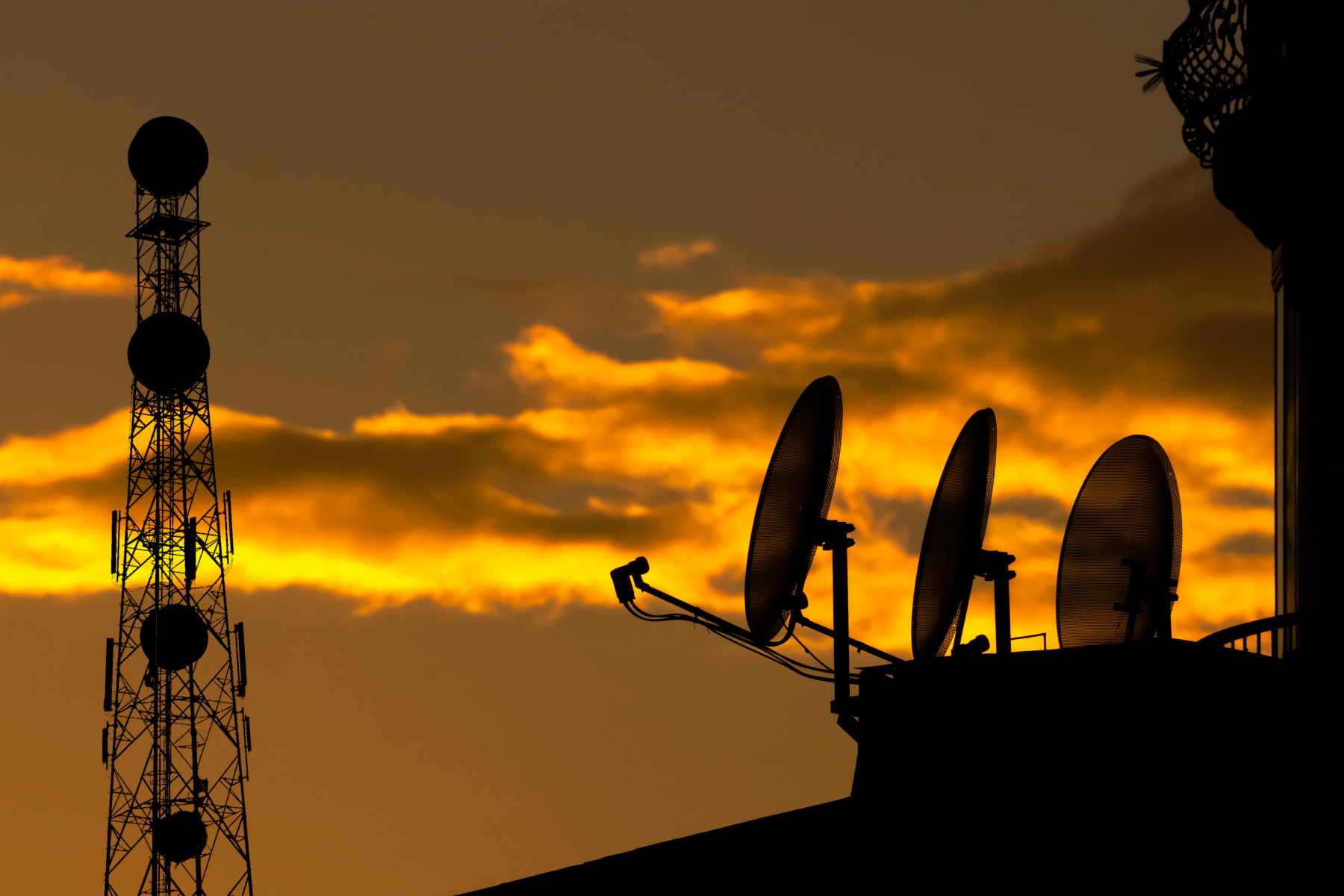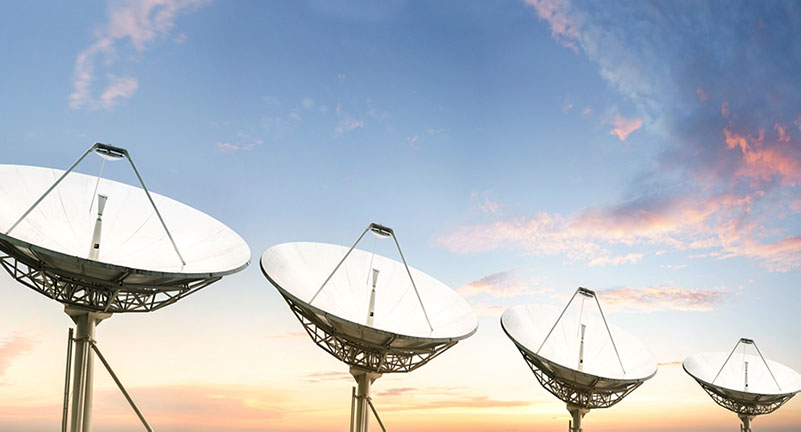How to Get Gigabit Internet
Jun 29, 2023 | Share
Brand Guides
You can get gigabit internet with speeds of 940 Mbps or 1,000 Mbps (1 Gbps) from fiber and cable internet providers for around $60 to $80 a month. It’s great for big households and heavy internet users, ensuring a smooth connection for streaming, gaming, and working from home.
In some areas, you can also find multi-gigabit internet plans with speeds of 2,000 Mbps and faster. The fastest home fiber internet service you can get is 10,000 Mbps (10 Gbps). With cable, the fastest speed is 1,200 Mbps, but cable providers are likely to up their speeds in the coming years.
Gigabit internet is mostly available in large cities and towns—but can you get it where you live? And if so, do you even need it? We go into all the specifics in our gigabit guide below.
Want to see if gigabit internet is available in your area? Run a search with our zip code tool.
Where can you find gigabit internet or faster?
| Provider | Max speeds | Prices | Customer rating**** | Order online |
|---|---|---|---|---|
| 2,000 Mbps | $70.00–$100.00/mo.* | 4.4/5.0 | ||
|
| 1,200 Mbps | $75.00-$80.00/mo.† | 3.7/5.0 | View Plan |
| Up to 1,500-2,300 Mbps | $69.99-$119.99/mo.‡# | 3.9/5.0 | ||
| 5,000 Mbps**** | $80.00–$180.00/mo.§ | 3.7/5.0 | ||
|
| Up to 1,000 Mbps (wireless speeds may vary) | $89.99/mo. for 12 mos.** | 3.7/5.0 | View Plan |
|
| 1,000 Mbps | $79.99/mo.†† | 3.6/5.0 | View Plan |
|
| 1,000 Mbps | $99.99/mo.‡‡ | 3.6/5.0 | View Plan |
| 940 Mbps | $70.00/mo.§§ | 3.6/5/0 | ||
|
| 5,000 Mbps | $69.99–$154.99/mo. ***±| | 3.5/5.0 | View Plan |
| 940 Mbps | $50.00–$60.00/mo.†††####‡‡‡‡ | 3.5/5.0 | ||
|
| 5,000 Mbps | $80.00–$180.00/mo.‡‡‡§§§ | 3.4/5.0 | View Plan |

| 2,000 Mbps | $69.99–$169.99/mo.║║ | 3.5/5.0 | View Plan |
See disclaimers at bottom of page.
***Ratings from HighSpeedInternet.com’s annual customer satisfaction survey.
You can find gigabit internet speeds and faster from fiber and cable internet providers. They’re available mostly in densely populated cities and towns where the network can handle large amounts of bandwidth.
What is gigabit internet?
Gigabit internet is a cable or fiber connection with speeds of 940–1,000 megabits per second (Mbps). It’s called gigabit internet because 1,000 Mbps equals 1 gigabit per second (Gbps), which is a far shorter number to read and write.
However, multi-gig internet has speeds faster than 1,000 Mbps (1 Gbps). These plans are still commonly referred to as “gigabit internet” because multi-gig speeds are relatively new compared to the more common gigabit plans.
When it comes to home internet, Xfinity has the fastest cable internet plan with speeds up to 1.2 Gbps. It also has fiber internet service at 6 Gbps, but smaller, localized providers have plans that reach up to 10 Gbps. However, fiber availability is scarce compared to cable.
| Internet speed | Things you can do | Ideal size of household |
|---|---|---|
| 0–5 Mbps | Send an email, browse and search, stream video in HD on 1 device | 1–2 people |
| 5–40 Mbps | Stream in HD on 2–5 devices, play online games, operate 1–2 smart home devices | 3–4 people |
| 40–100 Mbps | Stream 4K video on 2–5 devices, play online games with multiple players, quickly download large files (500 MB–2 GB), operate 3–5 smart home devices | 5–7 people |
| 100–500 Mbps | Stream 4K video on 5+ devices, download very large files in seconds or minutes (2–30 GB), run 5+ smart devices | 8–10 people |
| 500–1,000 Mbps | Stream in 4K on 5–10+ devices, download 40+ GB files very quickly | 10–15 people or more |
| 1,000 Mbps and faster | Stream in 4K on 10+ devices, do basically anything on 10+ devices with no slowdowns | 15 people or more |
Speed standards taken from HighSpeedInternet.com’s How Much Internet Speed Do I Need? guide.
You most often find symmetrical gigabit speeds with fiber internet. Many cable providers can also get you gigabit download speeds, but their upload speeds will be a mere fraction of 1,000 Mbps—usually in the range of 20–50 Mbps. Fiber upload speeds are symmetrical, meaning they’re often just as fast as the download speeds.
You need more than just a gigabit connection
Don’t get a gigabit internet plan or faster if you don’t have the equipment to support it. You need the proper Ethernet cables, ports, and a router that can support gigabit speeds. We list the best gigabit routers if you need an upgrade.
Search your zip code to see if gigabit internet is available in your area.
Is gigabit internet worth the money?
Gigabit internet is well worth the money if everyone in your home spends a lot of time doing bandwidth-heavy tasks online.
A gigabit speed pretty much ensures that you’ll never have to worry about long load times, excessive buffering, and other bandwidth-related inconveniences. A connection that’s 1,000 Mbps or faster gives you ample speeds to support practically anything and leave plenty of capacity left over for whatever friends or family members might be using your internet for too.
However, if you live with only one or two other people and don’t have very pressing internet needs, then you can definitely save money by springing for a slower plan. Even an internet speed of just 100 Mbps will be enough for many users to stream videos, play online games, and Zoom.
Not all gigabit plans list 1 Gbps
A lot of internet providers list gigabit plans with speeds up to 940 Mbps and not 1,000 Mbps. That’s because all wired connections use some bandwidth to carry information about your data. So, if a modem or ONT has a Gigabit Ethernet port, 60 Mbps is typically used for overhead, leaving you 940 Mbps. If a modem or ONT has a 2.5 Gbps Ethernet port, you get the full 1,000 Mbps speed. Some providers have yet to upgrade a majority of their modems to support 2.5 Gbps Ethernet, so you’ll see gigabit plans with speeds up to 940 Mbps.
Are fiber internet and gigabit internet the same?
No, technically fiber and gigabit internet are not the same. Fiber internet is a type of internet connection, while gigabit internet refers to the speed of the connection.
The terms “fiber internet” and “gigabit internet” are often conflated because most fiber-optic internet packages come in gigabit speeds—meaning anything of around 1,000 Mbps or faster. But some fiber internet providers offer slower speeds at a lower price in addition to gigabit packages. And many cable internet providers are also capable of providing gigabit download speeds.
What are the best gigabit internet plans?
Google Fiber’s 1 Gig plan is the best gigabit internet plan you can get. It comes at a reasonable price, with a flat fee of $70 per month that also covers equipment and installation. It gives you symmetrical speeds, so your upload speeds will be just as fast as your downloads. And it comes with unlimited data, so you can get the most out of your gigabit speeds without worrying about using too much data.
There are a bunch of other great gigabit plans out there, though, so don’t be worried if you can’t get Google Fiber in your area. We have more details in the table below.
Best gigabit internet plans
| Plan | Price | Download/upload speed | Connection type | Order online |
|---|---|---|---|---|
| Google Fiber 1 Gig | $70.00/mo.* | 1,000 Mbps/1,000 Mbps | Fiber | |
| Verizon Fios Gigabit Connection | $89.99/mo.† | Up to 940 Mbps/Up to 880 Mbps | Fiber | |
| CenturyLink Fiber Internet | $70.00/mo.‡ | 940 Mbps/940 Mbps | Fiber | |
| AT&T 1Gig Internet | $80.00/mo.§ | 1,000 Mbps/1,000 Mbps | Fiber | |
| Frontier Fiber 1 Gig | $69.99/mo. §§ | Up to 1000 Mbps/Up to 1000 Mbps | Fiber | View Plan |
| Xfinity Gigabit Extra | $80.00/mo. (depending on service area)** | 1,200 Mbps/35 Mbps | Cable | View Plan |
| Astound Broadband 940 Mbps Internet | $50.00–$60.00/mo. (depending on service area)†† | 940 Mbps/940 Mbps | Cable, fiber | |
| Spectrum Internet® Gig | $89.99/mo. for 12 mos.‡‡ | Up to 1,000 Mbps/Up to 35 Mbps (wireless speeds may vary) | Cable | View Plan |
| Optimum 1 Gig Internet | $70.00/mo.##*** | Up to 940 Mbps/Up to 35 Mbps | Cable, fiber | View Plan |
See disclaimers at bottom of page.
Most gigabit internet plans cost between $60 to $100 a month. If you’re lucky, you may be able to find a bargain price on a gigabit internet package from a provider like Astound Broadband. Generally, though, you should expect to pay more than usual for gigabit internet speeds.
Looking for an easy way to test and track your internet speed?
Take our internet speed test or download our free speed test app to test your speed from anywhere.
Download our free, easy-to-use speed test app for quick and reliable results.
Can you get gigabit upload speeds?
Yes, fiber internet providers can get you gigabit upload speeds.
Fiber is the only internet type that can deliver gigabit uploads. Cable providers can get you gigabit downloads, but uploading will be way slower—usually around 20–50 Mbps. Spectrum is the only exception with 500 Mbps uploads with its Gig plan in certain areas.
Internet users typically spend most of their time online downloading things (like with streaming, checking email, and downloading files), so you may not notice a difference. But good upload speeds will come in handy if you do a lot of upload-heavy activities, such as attending Zoom calls, hosting livestreams, or uploading files to Google Drive.
Activities that use upload speeds:
- Zoom calls and webinars
- Streaming on Twitch or Instagram Live
- Posting video to social media
- Uploading large files to Google Drive, iCloud, or other cloud servers
How do you know if you can get gigabit internet?
You can get gigabit internet if an internet provider with gigabit speeds operates in your area and if your equipment and Wi-Fi device support gigabit speeds.
Cable and fiber-optic internet providers both have gigabit internet plans available to a large number of customers. So if you can get either of those internet types in your area, chances are that you can get gigabit speeds.
Run a search with our zip code tool below to see what type of internet is available where you live:
Of course, you’ll also need equipment at home to deliver gigabit performance. Here’s what you’ll need:
- DOCSIS 3.0 modem or newer (for cable internet only)
- Router with a Gigabit Ethernet WAN port or faster.
- Router with Wi-Fi 6 for Gigabit wireless connectivity
- A computer with a Gigabit Ethernet port (or faster) or a USB 3 port (paired with a compatible adapter)
- Gigabit Ethernet (or faster) adapter for mobile devices (for wired connectivity)
The most important thing is to make sure you have a Wi-Fi 6 router or newer and a Wi-Fi 6 device or newer for wireless gigabit speeds.
Most recently manufactured computers, routers, and phones support Wi-Fi 6, so you should be good to go. If you have a device that was manufactured earlier than 2013, it’s probably for an upgrade to turn on the gigabit juice.
How fast is Gigabit Ethernet?
Gigabit Ethernet is fast enough to transfer data at a rate of up to 1,000 Mbps.
This Ethernet standard gives you fast speeds when you plug your device into a router’s Ethernet port. Home routers typically come with multiple Ethernet ports, which are also known as LAN (local area network) ports. Connecting your device to a router with an Ethernet cable gives you a faster and more direct internet connection.
Your sustained wired speeds will vary between 800 Mbps and 950 Mbps due to hardware and software overhead. But gigabit Ethernet is still the best way to go, since it’s much faster than the older Ethernet standard, called “Fast Ethernet,” which tops out at 100 Mbps.
Many modern routers allow you to link two Gigabit Ethernet ports together for a 2 Gbps multi-gig connection to a compatible device, like a modem or a NAS. Some newer routers even include a Multi-Gig Ethernet port for wired speeds up to 10 Gbps.
Running out of LAN ports on your router?
You can buy a Gigabit Ethernet switch to connect more wired devices. Take a look at our guide to the best gigabit Ethernet switches.
Gigabit internet and gaming
Online gaming doesn’t take up a whole lot of bandwidth, so you don’t necessarily need gigabit internet speeds to enjoy League of Legends, Overwatch, or other popular games. But you will want an internet connection with low latency when you’re gaming. In that case, a fiber internet plan is your best option, even if it’s not necessarily at gigabit speeds.
Latency, also known as ping rate, is the brief delay that happens when a signal goes from your device to the network and back—for example, when you click a button on your game controller or move your character with the joystick.
High latency creates lag, causing delays and other problems—especially when you’re playing fast-paced games like Call of Duty: Warzone. Fiber internet has the lowest ping rate out of all internet types, followed by cable internet. You can also reduce latency by getting a cable internet plan, closing out excess apps and browser tabs, or plugging your computer in directly to your router with an Ethernet cable.
Run a search with your zip code to see if gigabit internet is available in your area.
Do you need gigabit internet? Here’s what the customers think
Not everyone is satisfied with their internet just because they have gigabit speeds. In fact, many customers are very happy with their service even when their speeds are much lower.
Those are conclusions that we gleaned from HighSpeedInternet.com’s annual customer satisfaction survey. In an analysis of 21 internet providers, multiple providers that offer extremely fast internet packages ended up getting the highest ratings for speed and overall satisfaction. However, there were also providers that got below-average ratings even though they advertise impressive, multigigabit speeds.
Customers in the survey also gave excellent ratings to providers that aren’t especially known for speedy service—namely T-Mobile 5G Home Internet, which offers a fixed wireless plan that delivers modest speeds between 33 Mbps and 182 Mbps.
The survey’s results suggest that having gigabit speeds is just one of multiple factors that determine a quality internet connection. You also want to pay attention to price, customer service, and reliability. In fact, plenty of customers are perfectly happy with a sub-gigabit internet plans because they cost less while still delivering a quality connection.
Disclaimer
Disclaimer: Where can you find gigabit internet or faster
*Plus taxes and fees. Service not available in all areas. If you live in an apartment or condo, Google Fiber’s ability to construct and provide Fiber is subject to the continued agreement between Google Fiber and the property owner. Upload/download speed and device streaming claims are based on maximum wired speeds. Actual Internet speeds are not guaranteed and may vary based on factors such as hardware and software limitations, latency, packet loss, etc.
†For the first 12 months with a 1-year agreement.
‡ w/ Auto Pay. Available in select areas.
#Available in select areas only. Price per month with Auto Pay & without select 5G mobile plans. Fios plan prices include taxes & fees.
§Speeds based on wired connection. Actual speeds may vary. For more info, go to www.att.com/speed101.
Price after $5/mo Autopay & Paperless bill discount (w/in 2 bills). Plus taxes & fees. Monthly State Cost Recovery Charge in TX, OH, NV applies. One time install chrg may apply. Ltd. avail/areas. Call or go to www.fiber.att.com to see if you qualify.
Price after $5/mo Autopay & Paperless bill discount (w/in 2 bills). Plus taxes & fees. Monthly State Cost Recovery Charge in TX, OH, NV applies. Ltd. availability/areas.
*****Plus taxes. Price after $5/mo Autopay & Paperless bill discount (w/in 2 bills). Monthly State Cost Recovery Charge in TX, OH, NV applies.
**Limited time offer; subject to change; valid to qualified residential customers who have not subscribed to any services within the previous 30 days and who have no outstanding obligation to Charter. Spectrum Internet® Gig promotion price is $89.99/mo; standard rates apply after yr. 1. Taxes, fees and surcharges extra and subject to change during and after the promotional period; installation/network activation, equipment and additional services are extra.
††For the first 12 months. Plus, activation, installation and monthly modem rental fees.
‡‡for 12 months with 1-yr. term agreement
§§ Speed may not be available in your area. Maximum download/upload speed of up to 940 Mbps via a wired connection. Paperless billing required. Taxes and fees apply. Offer details. Offer includes professional installation at customer’s eligible location.
± w/ Auto Pay & Paperless Bill. Max wired speed 1000/1000 Mbps. Location dependent. Wi-Fi, actual & average speeds vary. One-time charges apply. In select areas where available.
*** w/ Auto Pay & Paperless Bill. Max wired speed 2000/2000 Mbps. Wi-Fi, actual & average speeds vary. One-time charges apply. In select areas where available.
|w/ Auto Pay & Paperless Bill. Max wired speed 5000/5000. Wi-Fi, actual & average speeds vary. One-time charges apply. In select areas where available.
†††Regional price differences may apply. No contract required. 24 Month Internet Pricing. Equipment priced separately. Includes $5 discount for 12 months w/ ebill & autopay. Observed speeds may vary. Excludes surcharges and fees. New residential customers only.
‡‡‡ w/Auto Pay & Paperless Bill. Terms apply. Not available in all areas.
§§§ w/Auto Pay & Paperless Bill plus taxes. Terms apply. Not available in all areas.
#### Regional price differences may apply. 24 Month Internet Pricing. No contract required. Equipment priced separately. Includes $5 discount for 12 months w/ ebill & autopay. Experienced speeds may vary. New residential customers only.
‡‡‡‡ Regional price differences may apply. for 12 months w/ ebill & autopay. Experienced speeds may vary. New residential customers only.
║║ 1 gig plan: Limited-time, non-transferable offer for residential customers that may not be combined with other promotions. Credit restrictions may apply. Subject to availability. 2 gig plan: With autopay for 24 mo.
Disclaimer: Best gigabit internet plans
*Plus taxes and fees. Service not available in all areas. If you live in an apartment or condo, Google Fiber’s ability to construct and provide Fiber is subject to the continued agreement between Google Fiber and the property owner. Upload/download speed and device streaming claims are based on maximum wired speeds. Actual Internet speeds are not guaranteed and may vary based on factors such as hardware and software limitations, latency, packet loss, etc
† w/ Auto Pay. Available in select areas.
‡Speed may not be available in your area. Maximum download/upload speed of up to 940 Mbps via a wired connection. Paperless billing required. Taxes and fees apply. Offer details. Offer includes professional installation at customer’s eligible location.
§Plus taxes. Price after $5/mo Autopay & Paperless bill discount (w/in 2 bills). Monthly State Cost Recovery Charge in TX, OH, NV applies. Internet speed claims represent maximum network service capability speeds and based on wired connection to gateway. 1GIG speeds avail. to new customers with the latest router (“BGW320”) and recommended setup. For 5 GIG speed, single device wired speed maximum 4.7 Gbps. Actual customer speeds may vary based on a number of factors and are not guaranteed. For more information, go to www.att.com/speed101.
**For the first 12 months with a 1-year agreement.
††Regional price differences may apply. No contract required. 24 Month Internet Pricing. Equipment priced separately. Includes $5 discount for 12 months w/ ebill & autopay. Observed speeds may vary. Excludes surcharges and fees. New residential customers only.
‡‡Limited time offer; subject to change; valid to qualified residential customers who have not subscribed to any services within the previous 30 days and who have no outstanding obligation to Charter. Spectrum Internet® Gig promotion price is $89.99/mo; standard rates apply after yr. 1. Taxes, fees and surcharges extra and subject to change during and after the promotional period; installation/network activation, equipment and additional services are extra.
§§ w/ Auto Pay & Paperless Bill. Max wired speed 1000/1000 Mbps. Location dependent. Wi-Fi, actual & average speeds vary. One-time charges apply.
## w/Auto Pay & Paperless Bill. Terms apply. Not available in all areas.
*** w/Auto Pay & Paperless Bill plus taxes. Terms apply. Not available in all areas.
Author - Peter Holslin
Peter Holslin has more than a decade of experience working as a writer and freelance journalist. He graduated with a BA in liberal arts and journalism from New York City’s The New School University in 2008 and went on to contribute to publications like Rolling Stone, VICE, BuzzFeed, and countless others. At HighSpeedInternet.com, he focuses on covering 5G, nerding out about frequency bands and virtual RAN, and producing reviews on emerging services like 5G home internet. He also writes about internet providers and packages, hotspots, VPNs, and Wi-Fi troubleshooting.
Editor - Cara Haynes
Cara Haynes has been editing and writing in the digital space for seven years, and she's edited all things internet for HighSpeedInternet.com for five years. She graduated with a BA in English and a minor in editing from Brigham Young University. When she's not editing, she makes tech accessible through her freelance writing for brands like Pluralsight. She believes no one should feel lost in internet land and that a good internet connection significantly extends your life span.







